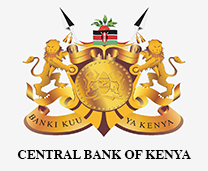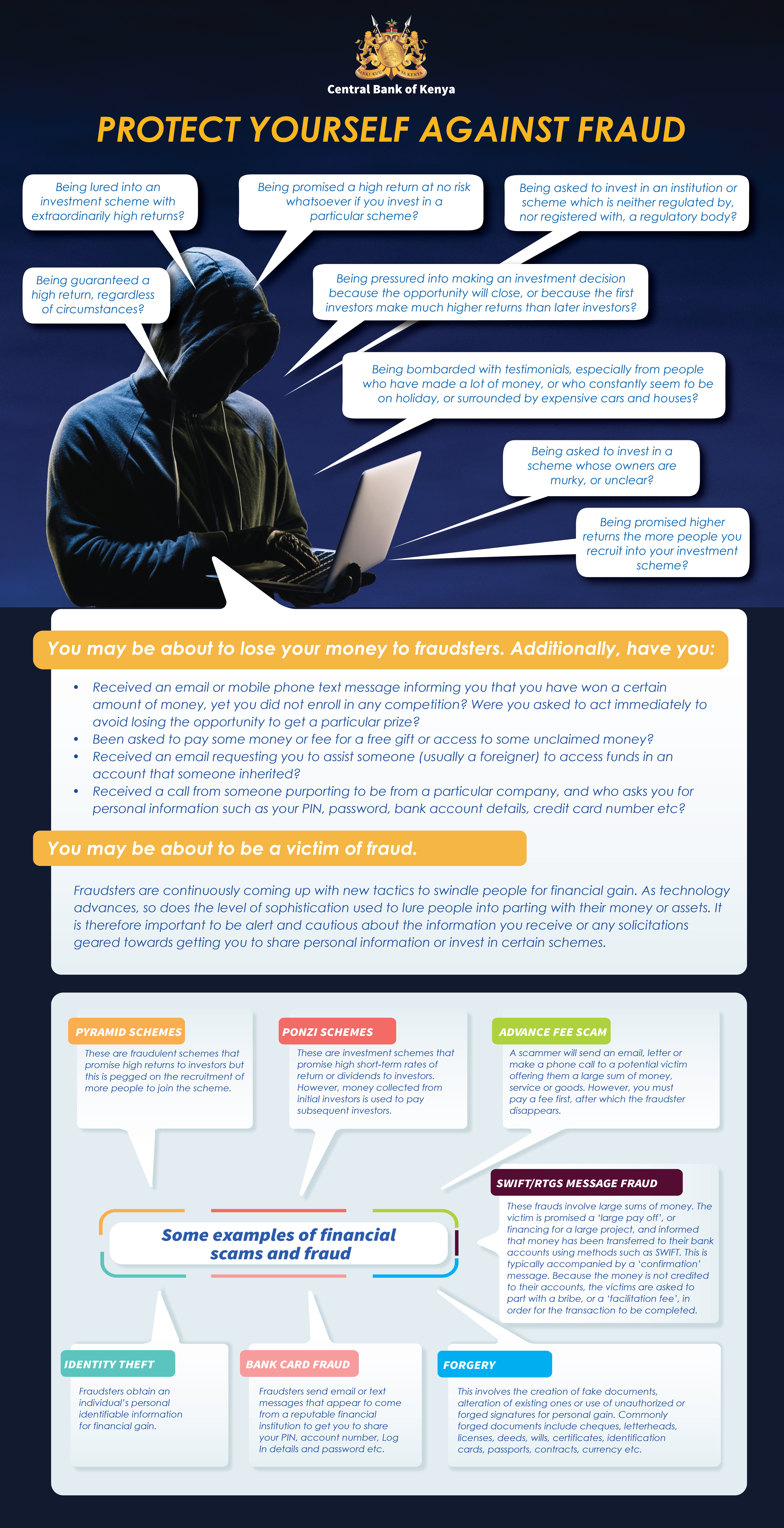Have you:
- Been promised a high return at no risk whatsoever if you invest in a particular scheme.
- Been asked to invest in an institution or scheme which is neither regulated by, nor registered with, a regulatory body.
- Been promised higher returns the more people you recruit into your investment scheme?
- Been lured into an investment scheme with extraordinarily high returns?
- Been pressured into making an investment decision because the opportunity will close, or because the first investors make much higher returns than later investors?
- Been asked to invest in a scheme whose owners are murky, or unclear?
- Been guaranteed a high return, regardless of circumstances?
- Been bombarded with testimonials, especially from people who have made a lot of money, or who constantly seem to be on holiday, or surrounded by expensive cars and houses?
You may be about to lose your money to fraudsters. Additionally, have you:
- Received an email or mobile phone text message informing you that you have won a certain amount of money, yet you did not enroll in any competition? Were you asked to act immediately to avoid losing the opportunity to get a particular prize.
- Been asked to pay some money or fee for a free gift or access to some unclaimed money?
- Received an email requesting you to assist someone (usually a foreigner) to access funds in an account that someone inherited?
- Received a call from someone purporting to be from a particular company, and who asks you for personal information such as your PIN, password, bank account details, credit card number etc?
You may be about to be a victim of fraud.
Fraudsters are continuously coming up with new tactics to swindle people for financial gain. As technology advances, so does the level of sophistication used to lure people into parting with their money or assets. It is therefore important to be alert and cautious about the information you receive or any solicitations geared towards getting you to share personal information or invest in certain schemes.
Some examples of financial scams and fraud are listed below:
Pyramid Schemes – These are fraudulent schemes that promise high returns/profits to investors. However, this is pegged on the ability of the recruit to enroll more people to join the scheme. The next level of recruits is also expected to recruit more investors, and it thus becomes a chain of recruitment. However, the profits from these schemes are not based on a product but rather the money that recruits ‘invest’ in, which is then used to pay earlier investors. Some schemes may indicate that they have a product they are selling, but this is usually a front to entice consumers and hide the pyramid nature of the scheme. Initially, the scheme organizers may appear to pay investors on time, but they eventually stop and disappear thereby fleecing investors of their money.
Ponzi Schemes – These are investment schemes that promise high short-term rates of return or dividends to investors. With a Ponzi scheme, investors pay money to a portfolio manager with the understanding that they will receive payment at a later date. The investors are usually under the mistaken belief that they are investing in a product or service.
Unlike a pyramid scheme however, the investor in a Ponzi scheme is not expected to enroll new recruits in order to get paid. When an investor wants their money back or a dividend is due, they are paid using the money received from new investors. Like pyramid schemes, the fraudster uses the money collected from the initial investor to pay subsequent investors. The cycle continues until the organizer flees with the money, which normally happens when there are no new investors being brought on board to generate enough capital to facilitate payment of dividends or principal amount to the existing large pool of investors.
Bank Card Fraud – Fraudsters may send email or text messages that appear to come from your bank or a reputable financial institution in what is known as phishing. They use various tactics to get you to share confidential information such as your PIN, account number, Log In details and password etc. For instance, they may state that your account has an issue and that you need to update or verify the information through a website link or mobile phone device. Thereafter, they use the details to steal money from your account.
There are also card skimmers who illegally copy the information from the magnetic strip of a credit card or ATM card. Thereafter, these fraudsters create copies of your card and make charges on your account.
In other instances, thieves use misplaced or stolen bank cards to make unauthorized purchases before the owners reports them missing.
Identity Theft – In such cases, fraudsters obtain an individual’s personal identifiable information for financial gain. This may include full names, ID numbers, bank or mobile phone details etc. With such information, the fraudster assumes your identity and undertakes financial transactions such as taking on loans including mobile loans, making purchases using your credit card, transferring money from your account to another one etc.
Advance Fee Scam – A scammer will send an email, letter or make a phone call to a potential victim offering them a large sum of money, service or goods. The catch, however, is that one is expected to part with a fee before you can access whatever is being promised. The scammer may indicate that the fee is for taxes, shipping costs etc. You will be requested to wire the money or send through a mobile payment platform. However, once the payment is made, the scammer disappears.
How to protect yourself against being scammed or defrauded
- Do not respond to unsolicited emails, letters or calls promising you some form of benefit.
- Do not share personal information online (website, social media), email or on the phone.
- Create a strong unique password for your online accounts. Do not use the same password for various accounts. Where possible, have multifactor authentication for sensitive accounts.
- Do not include too much personal information in your social media profile.
- If someone you know requests for monetary assistance through email or text, call them first to confirm if it’s a genuine request. It may be someone impersonating them.
- Exercise caution when making online payments with your bank card. Countercheck if the person or company is genuine before providing details or making payments.
- Do not click on email and text message links or attachments that request you to log in or verify your password. You should go to the official/legitimate website and log in from there.
- When in doubt about an issue, person, company, investment etc., seek a second or third opinion from someone else who is not associated with whoever is corresponding with you.
What you should do in case you are a victim of fraud
In the unfortunate case that you fall victim to a fraudster, ensure you do the following:
- If you shared personal banking details, inform your bank immediately. Change the passwords to your online accounts immediately.
- Report the fraud to the police.
Remember to always exercise caution when you receive unexpected/unsolicited emails or calls. Confirm if the offer, company or person is legitimate. Do not share your personal information such as your password, as a credible institution would not require you to give out such information.

